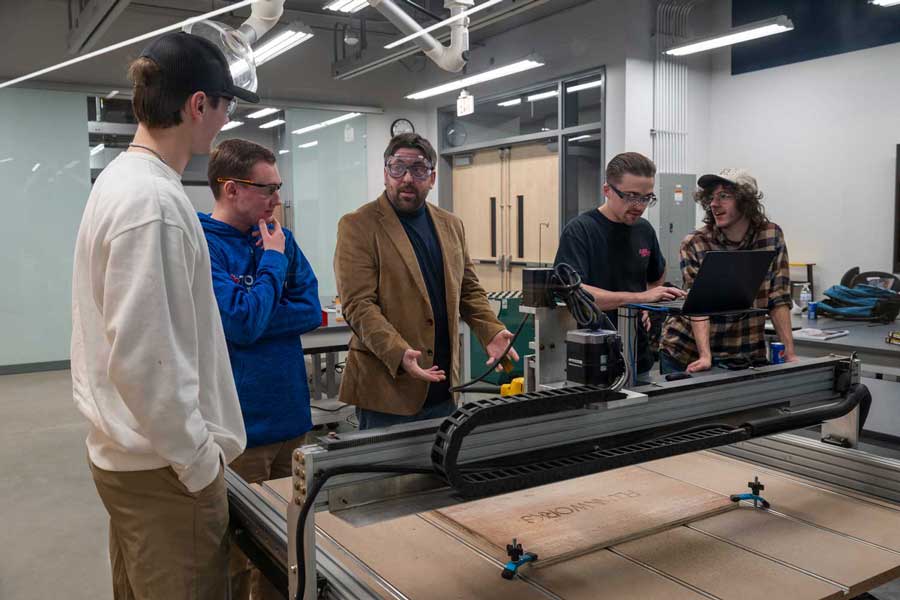Employers eager to hire technology grads
Programs developed with local employers in mind

When Dr. Matt Kropf began designing a proposal for two new engineering technology programs at Pitt-Bradford, he involved regional industries from the beginning.
What are the skills that they need employees to have?, he asked. Which skills are the hardest to come by among local employees? What kind of equipment should students be trained on? He designed two new four-year bachelor’s degrees – energy engineering technology and mechanical engineering technology – for the Bradford campus.
Campus leadership committed to raising the money needed to construct a $24.5 million, 40,000-square-foot state-of-the-art building to be home to Pitt-Bradford’s new and existing engineering programs as well as an existing and popular major in computer information systems and technology.
The University of Pittsburgh, Commonwealth of Pennsylvania and area industries endorsed the program and the new building with support, including $6 million from the Commonwealth, $2 million from Zippo Manufacturing Co. and $700,000 from Halloran Philanthropies.
The engineering technology programs enrolled their first students in the fall of 2022, and the George B. Duke Engineering and Information Technologies Building opened in January.
Now director of the engineering technology programs, Kropf has spent the past month setting up the lab where he teaches classes for using sensors and automation and giving tours to the industries that contributed to the building.
The donors are excited to get engineering technology students into internships and graduates into their businesses.
“We’re getting affirmation about what we’re doing,” Kropf said.
Engineering technology is the hands-on version of engineering. Students take technical calculus and hands-on classes with labs in machine shop, electrical technology, fluid mechanics, strength of materials, computer-aided design, manufacturing and more. Classes are structured less around theory and more around applications.
“Our students will know not only know how to design something, they will understand how it is manufactured and the machines that something is manufactured on,” he said.
Jake Bryner, chief technology officer at Control Chief Corp. in Bradford, is looking forward to working with interns and graduates from the program.
“Having students who have practical experience is what I want as an employer,” he said.
For students, having small classes with lots of face-to-face interactions with the faculty is an attraction.
Mychal Berlinski, an energy engineering technology major from Allegany, N.Y., transferred to Pitt-Bradford from a much larger program.
“The smaller class sizes were more up my alley so you can talk to the professors,” he told a group of executives taking a tour with Kropf. “It’s also a lot more hands-on, which I was really stoked about.”
Students who major in mechanical engineering technology can do most jobs that require an engineering degree, including designing and fabricating, managing automated machinery, overseeing an industrial process, or developing a new one.
Employers include manufacturers; governments; professional, scientific and technical services; utilities; and agriculture. Jobs include consulting engineer, product and materials testing technologist, quality management engineer, industrial engineer, product engineer, product manager, transportation engineer, automotive engineer, design engineer and technical sales rep.
Students who major in energy engineering technology can work for engineering firms, consultants, manufacturers, solar power generators and utilities. Jobs include building automation programmer, design engineer, energy manager, energy systems engineer, field service engineer, green building engineer, relay substation technician, sustainability engineer, sales engineer, solar consultant, solar installer and wind turbine technician.
--30--